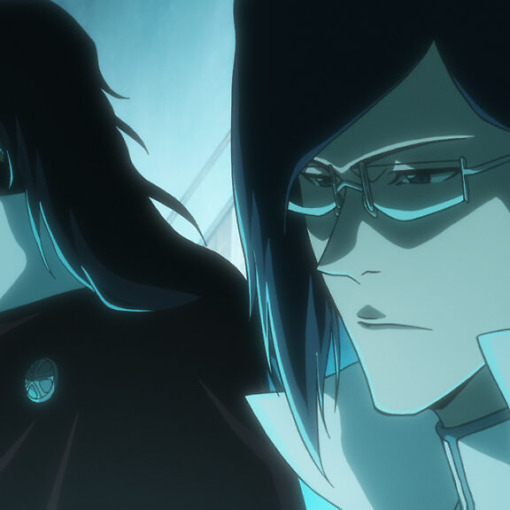By Jonathan Clements.
Lina is rushed to the infirmary at the edge of life, her body terribly battered and sliced by an encounter with a lethal dragon, surrounded by wizards chanting healing spells and administering stasis commands. It is only as she slowly recovers, her memories of the battle mercifully lost, that her carers start to ask the difficult questions. Why was a black knight fighting such a beast without support? Where were the magical talismans that all black knights should carry? Why was she so under-supported? Where, in fact, was her husband?
Takasugi Naturu’s cod-Victorian fantasy world seems at first like many a gamified light-novel society. It is stacked with colour-coded character-classes, black knights, red knights, white mages and so on, in a nation that is run on magic and threatened by numerous wandering monsters. But Naturu’s world building is wonderfully intricate. She (I am assuming she is a she) is an author with a tough love for the tropes of fantasyland, who asks searching questions like why the wandering monsters are wandering. Mating season, it turns out, drives them crazy and outside their normal territory. Her magic-based society has elements in it of Maquia or Violet Evergarden, with tips of the hat to Larry Niven’s The Magic Goes Away (or at least, to those RPGs that ripped him off with the concept of mana) and a strong dose of Anne McCaffery.
The monsters aren’t the only ones in search of a match. It is a truth universally acknowledged, as someone might say, that a single black knight, in possession of medals and multiple dragon kills, must be in want of a husband. Black knights are women with the singular power to use the “old magic”, which is the only thing that can take down the greatest threats. But such a deadly profession has a high level of, shall we say, dropouts, and the best way to bolster a Black Knight’s prowess is to get her hitched to a white mage as a helpmeet. If the couple find love, then the spells and talismans the husband provides will be all the more powerful, and the black knight can go on to greater things. And, if possible, retire to make more black knights.
Not all that far beneath the surface of Naturu’s text is an allegory of gender roles in the modern world, not unlike the inspirations of Sexiled. Lina is welcome to go out there and “slay dragons” in the workplace, but society would much prefer it if she did only the briefest tour of duty before stopping to pop out little black knights to keep the organisation going. In a dilemma redolent of that speech from the Barbie movie, she is pressured to defend her nation, but also to retire and have babies. Naturu alludes to the recurring matter in Japanese romance of love matches versus “arranged” marriages. An omiai is not quite finding out who your spouse is on the day you marry them, but perhaps better described as a high-pressure and business-like dating service.
Lina lucks into a betrothal to Joshua Granwell, a member of the aristocracy, with whom her mana seems to have a particular affinity. That’s more that can be said for the in-laws, a bunch of snooty toffs who think of her as just a gold-digging commoner, and do everything they can to separate her and her husband. Do… will do, have done… The cut-up structure of the book introduces her after the couple have become estranged, forcing the reader to piece together the details of their betrothal, subsequent romance (feelings come later), and early married life. But as someone points out, a white mage “doesn’t just protect their spouse’s body, they also protect their heart.” Throughout the early chapters, the reader comes to understand that Lina’s husband somehow has/will have broken her heart, leaving her destitute and deserted.
Naturu admits in her Afterword that Marriage, Divorce and Beyond shows her feeling her way through the craft of writing as a novice, which is probably why it shows so many false starts. The story, such as it is, “begins” in three or four different ways, but in what is either happenstance or later authorial insight, each of them forms a cliffhanger of its own, repeatedly kiting the story of Lina’s betrothal, marriage and enforced separation, leaving the reader deliciously guessing at what’s happened/will happen. The story’s “young adult” format is most obvious in the way that it initially eschews sex and violence. The early encounter with the dragon happens entirely off the page, and cannot be recalled by am amnesiac heroine. Meanwhile, the couple’s honeymoon period is discreetly unmentioned, leaving the reader to only guess at what might go on between the characters in the bedroom. Their love, to all intents and purposes, is entirely platonic, at least as it appears on the page.
Later on, as Naturu develops greater confidence, the violence arrives with a vengeance, in a visceral scene as Lina, slumming it in self-imposed exile as a glorified janitor, single-handedly takes on a wandering monster in an aristocratic enclave. She, and the text around her, blossoms in a vibrant, magical combat scene, as we finally get to see what a knight in Naturu’s world can really do.
Translator Olivia Plowman delivers an eloquent, mannered text like Downton Abbey with dragons, adding to the believability of Naturu’s weird world. Throughout the novel, I was left with an odd sense of anticipatory excitement, less about the book itself, than about the wonderful anime it could surely become. I found myself imagining the way that a TV series could fill in some of the blanks, ramp up some of the action, and maybe even flesh out the characters’ more private moments. In the right hands, and with a title change to something a little less Jane Austen, Marriage, Divorce and Beyond has the potential to be a fantastic entry in the genre we are now supposed to call “romantasy”, as If that had not already long, long been a thing.
Jonathan Clements is the author of Anime: A History. Marriage, Divorce and Beyond: The White Mage and Black Knight’s Romance Reignited by Takasugi Naturu with illustrations by “kieshi akaz”, is published by J-Novel Club.



